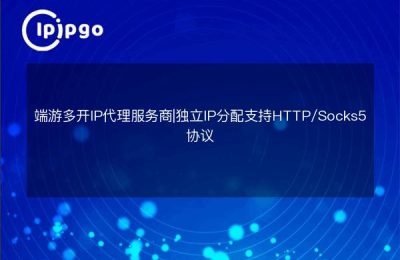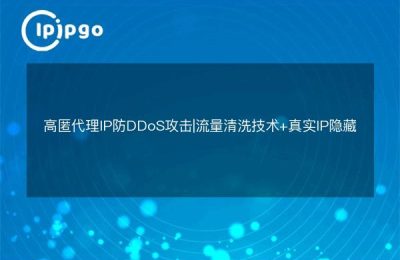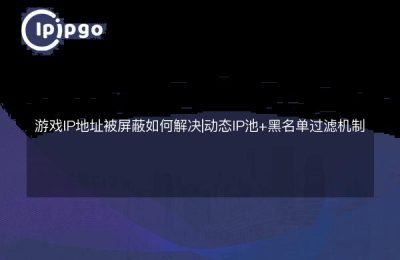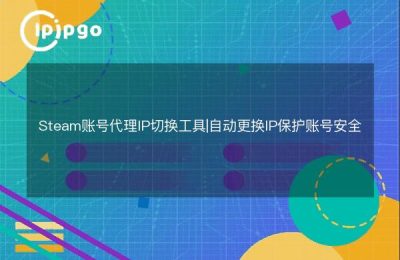
Why is your crawler always blocked? Try Proxy Pool's 'Wheeling'
Anyone who has engaged in data collection knows that a single IP high-frequency request is like taking a loud speaker and shouting "Come and block me". The principle of proxy pooling is very simple...Let hundreds or thousands of IPs take turns playing the tie-in. This is like opening 20 checkout lanes at the supermarket checkout, which is far more efficient than opening only 1 lane. However, ordinary proxy service has a fatal injury: IP quality is not stable, often encountered can not connect, slow response.
It's time to look at the hard power of the proxy service. Take ipipgo for example, they cover residential IPs in 240+ countries and regions, which is equivalent to each request being able to masquerade as a real user in a different region. What's more.Mixed dynamic + static IP supportThis flexibility is particularly useful for complex acquisition scenarios.
Thousands of concurrency is not a dream: scheduling strategy determines success or failure
The key to achieving highly concurrent acquisition is threefold:IP stock levels, scheduling algorithms, failure fusion mechanismsWe have done tests. We have done the test, with the traditional single IP collection of 10,000 pieces of data in an average of 3 hours, while the use of ipipgo proxy pool with multi-threading, the same task can be completed in 23 minutes.
Here's a practical tip:Customize the IP allocation strategy according to the characteristics of the target website. For example, when collecting e-commerce data, it is recommended to set:
- No more than 5 consecutive requests from a single IP
- Failed requests automatically switch IP 3 times
- Automatic expansion of spare IP pools during high-frequency hours
These strategies, together with ipipgo's API to obtain IPs in real time, can effectively avoid triggering the anti-climbing mechanism.
The "Lubricant" of Distributed Acquisition: Intelligent Scheduling of IP Resources
When a project requires multiple servers to work together to collect, traditional proxy services often have IP conflicts. ipipgo'sregional traffic diversion functionThis is where it comes in handy - you can have the Beijing servers call North American IPs and the Guangzhou servers call Southeast Asian IPs to achieve true physical distribution masquerading.
Here's a real-life example: a financial data platform needs to collect public data from 15 countries simultaneously, by setting:
| Server Location | Assign IP regions | Number of concurrent threads |
|---|---|---|
| Frankfurt Node | EU National IP | 200 |
| Singapore Node | Southeast Asia IP | 150 |
| North American Node | US-Canada IP | 300 |
Successfully improved the collection efficiency by 6 times and maintained a blocking rate below 0.3%.
Guide to avoiding pitfalls: these details determine the stability of the agent pool
Having seen too many teams stepping on potholes with agent pooling applications, here are three key points:
1. IP warm-up mechanism:Don't put all the new IPs into production at once, it's recommended to use the 10% thread to do availability testing
2. Traffic camouflage:IPs in different regions should match the corresponding time zone language settings
3. Exception monitoring:Set the IP to be automatically discarded if the response time exceeds 3 seconds.
ipipgo's.Real-time quality monitoring interfaceIt is useful in this regard to get data such as the current latency and success rate of each IP to assist the scheduling system in making intelligent decisions.
Frequently Asked Questions QA
Q: Does proxy IP affect the collection speed?
A: Quality proxies can instead speed up the process by avoiding duplicate requests caused by blocking. ipipgo's average response time for residential IPs is within 800ms, which is comparable to that of a dedicated enterprise line.
Q: Do I need to maintain my own IP pool?
A: Not required. ipipgo's API supports automatic IP acquisition/replacement, and it is recommended to set the IP pool of 20% to be updated every 5 minutes to ensure freshness without affecting efficiency.
Q: How do you handle geo-restrictions on your website?
A: Through the region selection function of ipipgo, IP positioning can be accurate to the city level. For example, if you need to collect the living information of a certain place, you can directly call the local residential IP.
Finally, a piece of cold knowledge: the real high-quality proxy service, not to see the number of IP but to see theResource purity and scheduling capabilitiesSome service providers claim hundreds of millions of IPs, but in fact most of them are data center IPs. Some service providers claim hundreds of millions of IPs, but in fact most of them are data center IPs, and this kind of is just a setup for professional acquisition. Instead, service providers like ipipgo that focus on real residential IPs can support higher business demands with less IP volume, which is the "ammo stock" that technical teams need.








